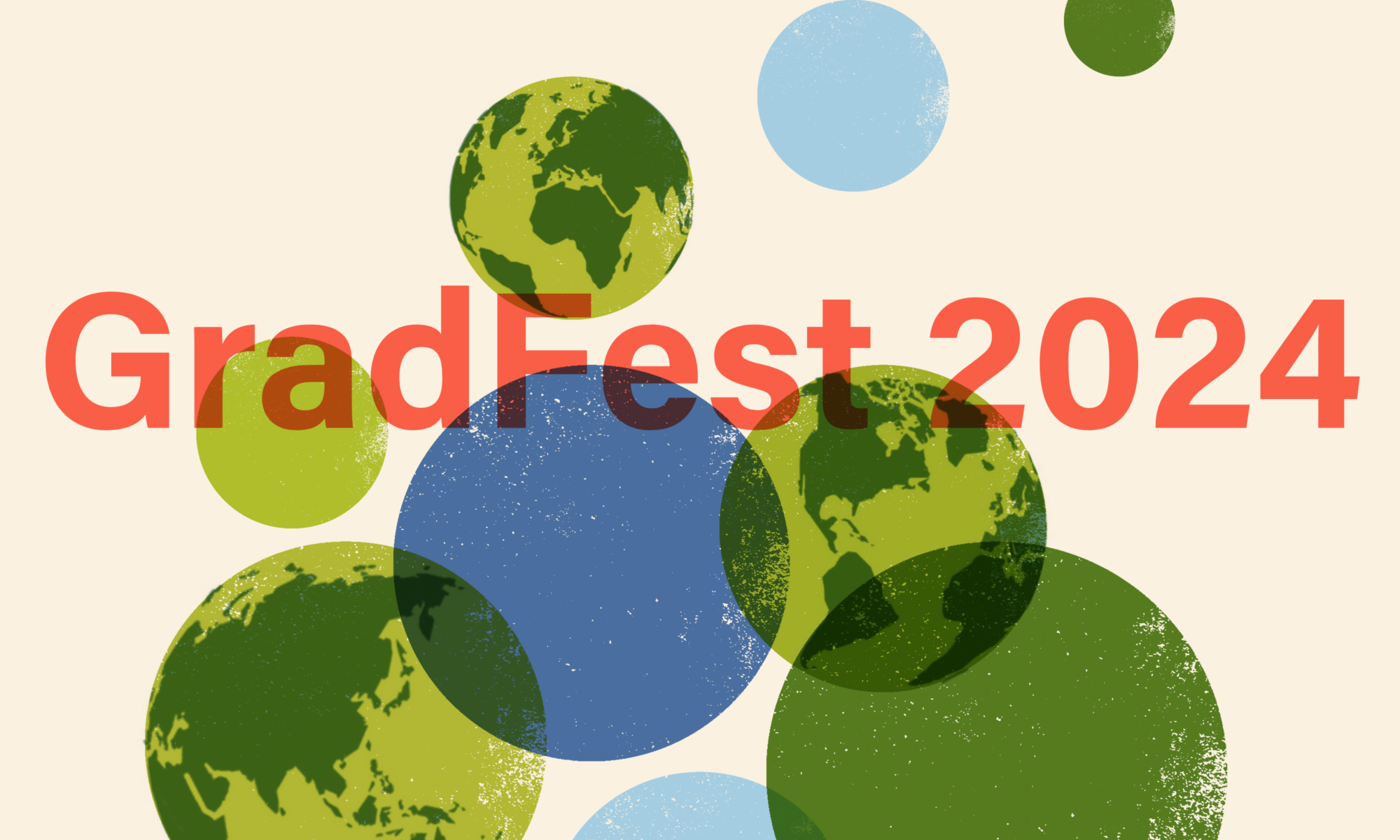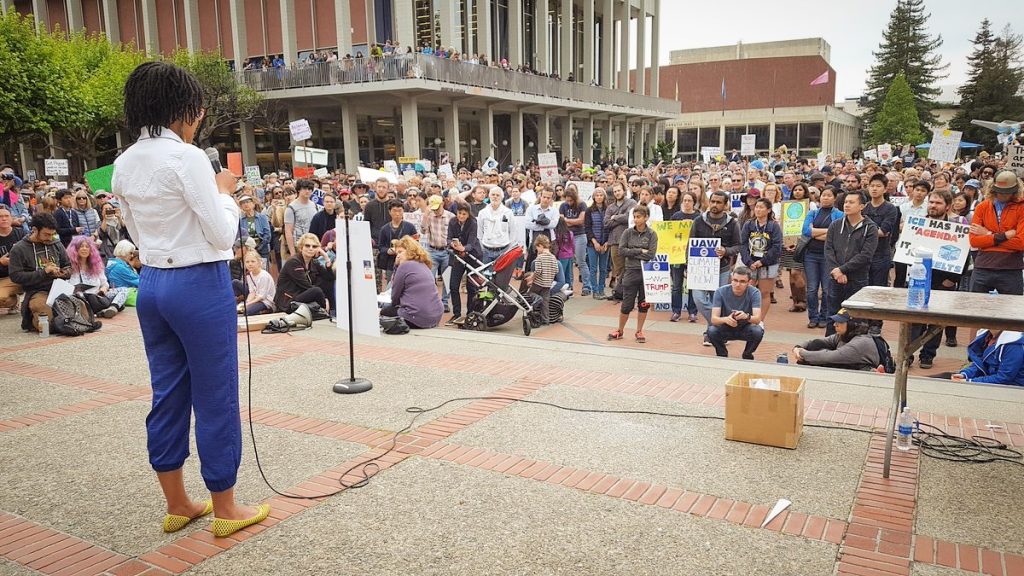Personal research website | Twitter | Facebook
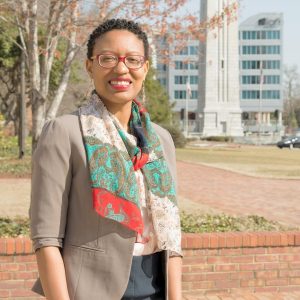
Feel free to contact Frances at frobertsgregory@berkeley. edu if you have questions or comments regarding the content here.
Frances Roberts-Gregory is fearless, fierce, determined, and phenomenally accomplished. Her innovative climate justice research in Louisiana’s Gulf Coast breaks new ground in the field, and her passion for justice is inspirational. As a scholar-activist, Frances’ work centers the experiences of Black and Indigenous women and highlights barriers and opportunities for Gulf Coast women of color to shape climate policy, build political solidarities, organize for justice, and have their voices heard in the larger environmental movement. During her time at Berkeley, Frances has received an almost-dizzying number of accolades and awards, including the Switzer Environmental Fellowship, the National Science Foundation Graduate Fellowship, the Ford Fellowship, and the Chancellor’s Fellowship. She was named a University of Michigan and Environmental Grantmakers Association Environmental Fellow, a Significant Opportunities in Atmospheric Research and Science (SOARS) scholar, and she was also selected as a Gates Millennium Scholar. In 2019, Frances was a featured panelist at the UNFCCC COP25 Climate Change Conference in Spain to advocate for the Feminist Agenda for a Green New Deal. She brought attention to the perspectives of youth, women, and indigenous people at the COP alongside activists from the NAACP, the Women’s Earth and Climate Action Network (WECAN), and the Women’s Environment and Development Organization (WEDO). Her work and activism were highlighted by the Berkeley March for Science, PBS, the Ocean Conservancy, Future Earth, Peace Talk Radio, Extinction Rebellion New Orleans, the New Orleans Alliance for Affordable Energy, and Democracy Now! In addition to her many accomplishments, Frances has been a caring mentor, consistently seeking to help fellow students navigate both personal and professional challenges at UC Berkeley, Tulane University, and Bard Early College New Orleans. It has been an honor and a privilege to serve as Frances’ PhD adviser, and it will be equally exciting to see her continue to achieve great things when she begins her new postdoc position at Northeastern University in 2020 and faculty position at Spelman College in 2021!
—Kathryn Teigen De Master, Assistant Professor, department of ESPM
About Frances
Frances Roberts-Gregory is an ecowomanist ethnographer finishing up her doctoral research in Environmental Science, Policy & Management at the University of California, Berkeley. She is also a Gates Millennium Scholar, NSF GRFP fellow, Switzer Fellow, Significant Opportunities in Atmospheric Research and Science (SOARS) Protégé, University of Michigan and Environmental Grantmakers Association Fellow, and Ford Foundation Fellow.
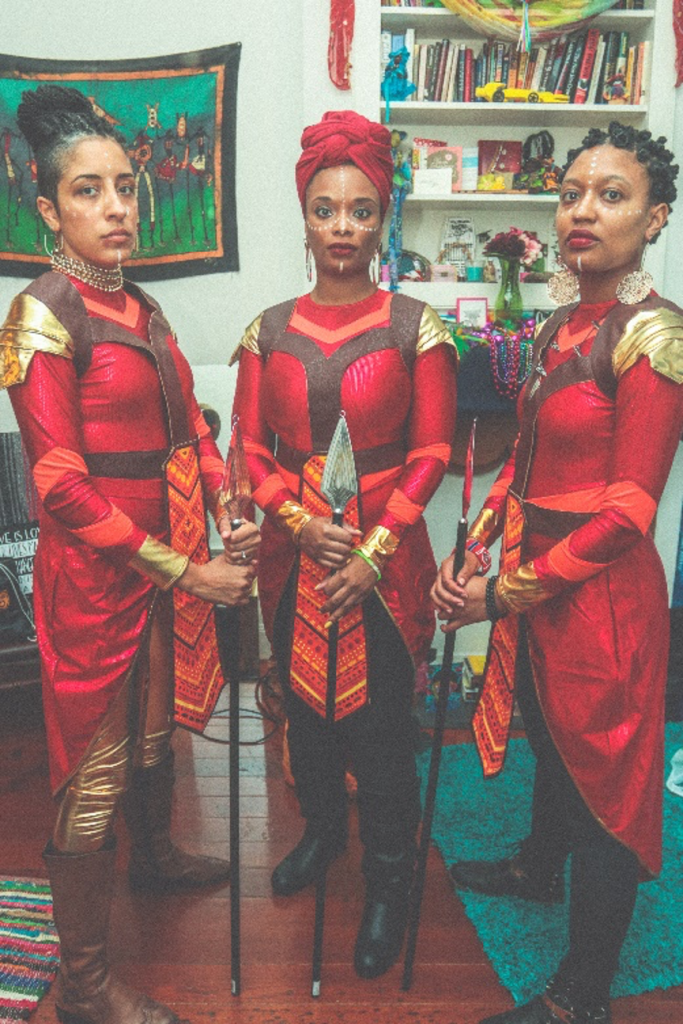
In 2013, Frances graduated from Spelman College with a BA in Sociology, Anthropology, & Environmental Studies. She also pursued a minor in Spanish and a concentration in food justice. Building on her interests in race, gender, justice, and nature, her current research employs Black feminist autoethnographic methods, community geography, and feminist activist research to interrogate how Gulf Coast women of color navigate contradictory relationships with energy and petrochemical industries, resist environmental racism, and advocate for climate justice and feminist climate policies. From 2018-2019, Frances lectured on climate justice, environmental racism, digital media, and gender justice at Tulane University and Bard Early College New Orleans (BECNO). She also consulted for the Deep South Center for Environmental Justice and managed the Gulf Equity Water Corps Project to develop youth leadership around flooding, sea-level rise, and stormwater management. Frances is a co-founding member of the Feminist Agenda for a Green New Deal and served as a resource developer for the New Orleans Women4Climate Mentorship Program. She enjoys vegan cooking, salsa dancing, cuddling with her 3-legged cat Raymond Grapes, and creating throws with her Women of Wakanda (WOW) Mardi Gras subkrewe when not leaning deeper into what it means to be an Afrofuturist climate activist, environmental educator, Black geographer, and environmental anthropologist.
Dissertation title:
Post-Apocalyptic Environmental Politics: Women of Color, Climate Justice, and State-Corporate Crime in Gulf Coast Louisiana
Dedication
This research is dedicated to my Uncle Rudy, Aunt Gloria, and Cousin Latasha (RIP) who all passed as a result of COVID-19 in Essex County, New Jersey. Zipcodes and racialized environmental health disparities do matter for Black bodies during pandemics and the climate crisis.
Positionality
I am the great-granddaughter of field hands who toiled in tobacco and cotton fields in North Carolina, factory workers produced by the Great Migration to New Jersey, and former sharecroppers who still live in Georgia. I am a product of enslaved Africans, Indigenous folk, plantation owners, and immigrants from various countries. I am a Black woman and woman of color who grew up in Section 8 housing and homeless shelters for women and children in Arlington, Virginia. I am a proud graduate of Spelman College and first-generation Ph.D. Candidate in Society & Environment. I am, most importantly, a descendant of environmental justice geographies including Carolina hog and chicken farms, northern chemical industries, and southern junkyards.
Short Research Blog
“Recently my new mantra is ‘remain and reclaim’. I also wonder often if I’m kidding myself. Did I drink the Kool-Aid too to think that I can build a house on a concrete slab on top of land that is essentially sinking? There are times when I’m talking out of both sides of my mouth saying, “Home is home. There’s no place like home. Plant your fruit trees. Keep your seeds growing.” Then there is another part of me that’s like, “You know what? I live right down the street from two major oil refineries and I’ve packed my car too many times to evacuate to be naive and think that I won’t have to do that again.” I also don’t know where to run to.”
Monique Verdin, Indigenous Storyteller, 2020 Peace Talks Radio Interview
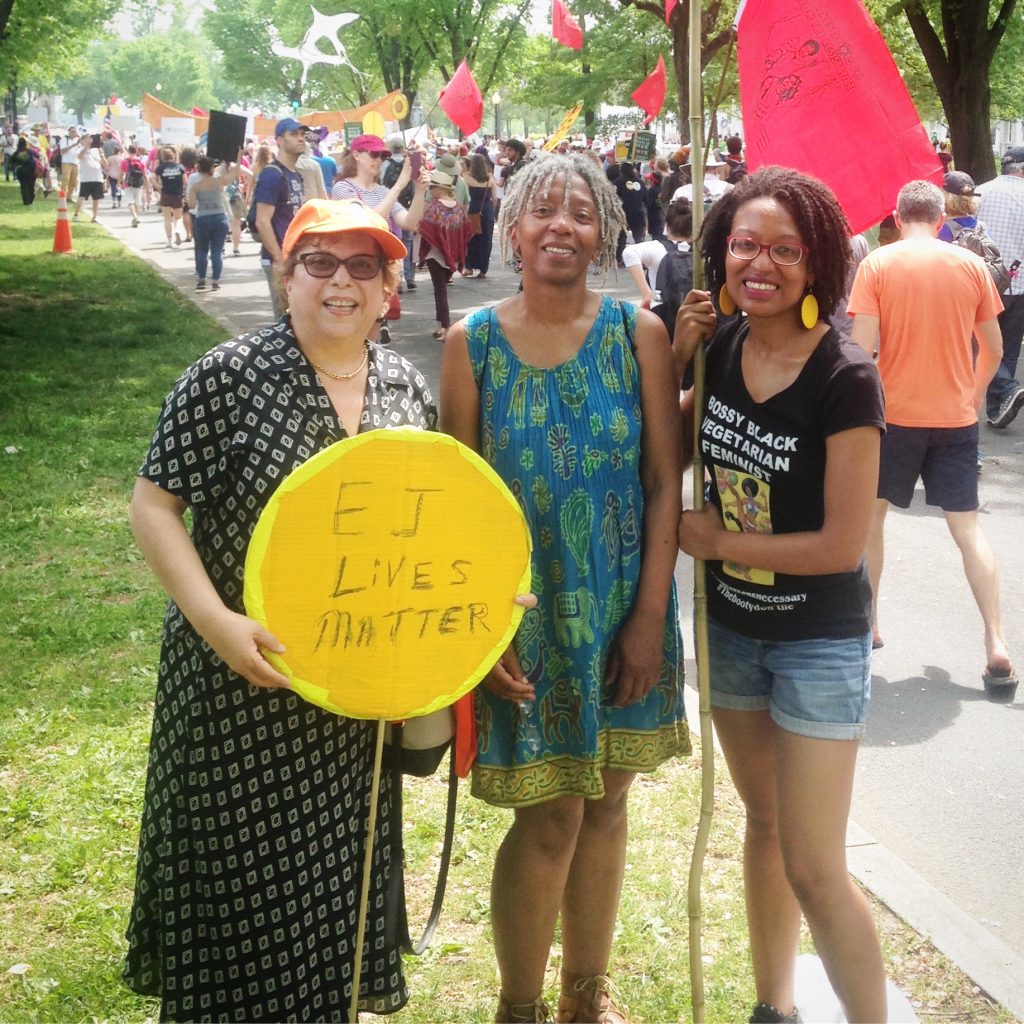
The climate crisis is real. Frontline communities of color already experience death, disease, and disability as a result of disaster capitalism and ongoing racialized/gendered/classed inequalities. BIPOC (Black, Indigenous, People of Color), youth, and women of color are the most impacted by ecological devastation, yet remain the least represented in environmental decision making, climate policy, and natural resource management. They ultimately suffer epistemic injustice when their voices and solutions for climate change are excluded, silenced and delegitimatized. Nevertheless, Black feminist, Indigenous, and Afrofuturist environmental thought remind us that the environmental crisis of today and yesterday is also an opportunity for change and justice tomorrow. In other words, the salvation of our planet, including liberation for all oppressed peoples and transformative systems change, rests upon our commitment to seriously consider and heed women of color’s policy advice, environmental philosophies, ancestral wisdom, and scientific solutions.
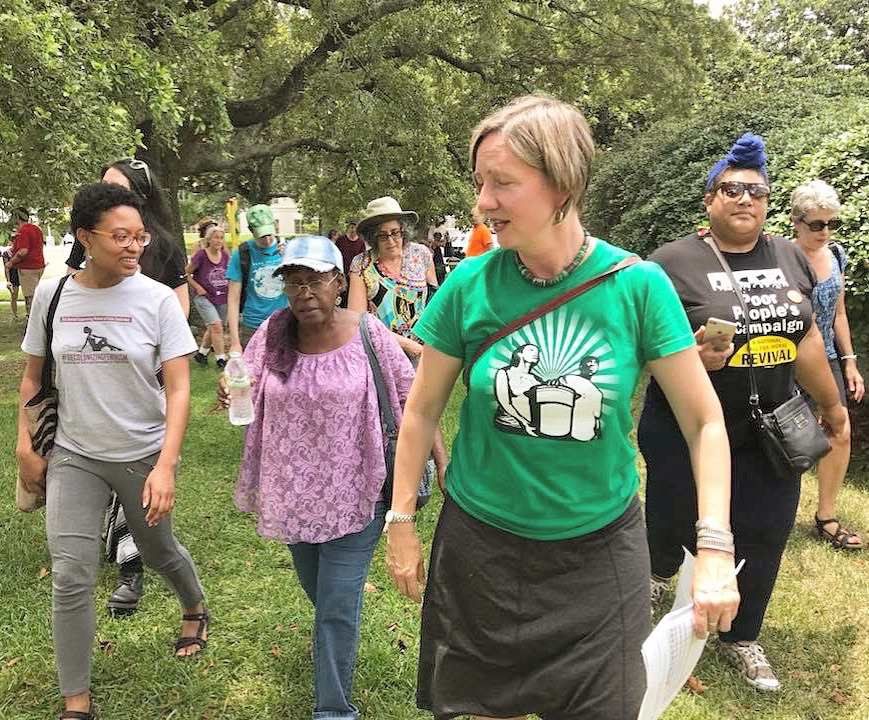
Building on my interests in race, gender, justice, and nature, my current research explores women of color, post-apocalyptic imaginings, and state-corporate crime in Gulf Coast Louisiana. I employ Black feminist autoethnographic methods, ecowomanist methodology, Indigenous storytelling, and feminist activist research to interrogate how Gulf Coast women of color navigate contradictory relationships with energy and petrochemical industries, resist environmental racism, and advocate for climate justice and feminist climate policies.
To date, I have conducted nearly three years of participant observation with Louisiana riverine and bayou grassroots environmental justice organizations, climate action groups, and local schools as an environmental educator and scholar-activist. I have engaged international feminist climate organizations and advocated for a Feminist Agenda for a Green New Deal at the United Nations Framework Convention on Climate Change (UNFCCC) at COP25 in Madrid. I have developed feminist climate justice curriculum and sea-level rise, flooding, and stormwater management curriculum for Tulane University, Bard Early College New Orleans (BECNO), and the Deep South Center for Environmental Justice HBCU Climate Change Consortium. I have likewise developed resources and facilitated workshops for the Women4Climate Mentorship Program sponsored by C40 and the City of New Orleans Office of Resilience & Sustainability. I have interviewed over 55 Black and Indigenous women and men of color allies using conversational style interviews. Finally, I have presented my research findings at the World Forum on Climate Justice in Glasgow, the virtual FemGND Earth Week Dialogs on “Resilience and a Just Recovery”, and the Future Earth and Ocean Conservancy Virtual Blue COP.
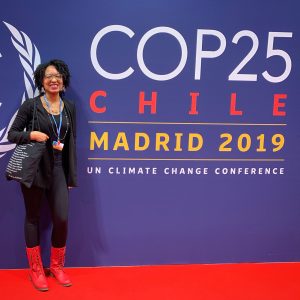
2019 UNFCCC COP25 in Madrid, Spain 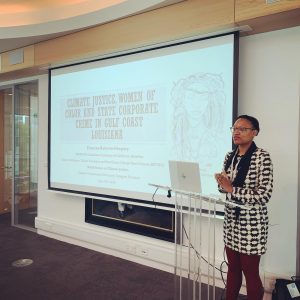
2019 World Forum on Climate Justice in Glasgow, Scotland 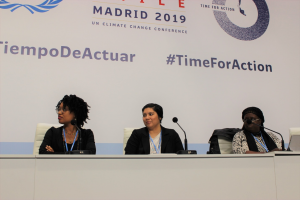
2019 UNFCCC Feminist Agenda for a Green New Deal Press Conference in Madrid with the NAACP, WEDO, and WECAN
My intersectional, ecowomanist analysis ultimately excavates eco-memories, centers critical reflexivity through inductive, iterative problem-solving, and follows what ecowomanist theologian Melanie Harris calls the ‘spiral method’. Although I have many research findings, I will only highlight a few for brevity. What I continue to see on the ground is how Gulf Coast women of color 1) fluidly navigate identity labels (i.e. codeswitch) to secure pleasure, familial stability, and financial resources, 2) embrace multifaceted truths and the interconnectedness of their personal and professional lives through digital activism, 3) rework gendered and racialized kinship systems for survivance within post-apocalyptic plantation and petrocolonial geographies, and 4) reject resilience narratives and necropolitics in favor of anti-resilient systems change.
So, what does this mean in lay(women) terms? *For me, environmental, climate, and energy justice goes beyond the familiar pipeline protests, plastic bans, divestment campaigns, online petitions against criminalization of water protectors and anti-protest laws, renewable portfolio standards, climate lawsuits, and policy work. Environmental and climate activism is also about acknowledging the everyday choices we make to secure pleasure, professionalization, financial security, intimacy, and companionship as members of frontline communities. It is how we leverage our personal relationships to protect and emotionally fortify present and future generations. Climate activism consequently looks like Indigenous and Black women teaching youth of color about green infrastructure, growing plants as medicine, and engaging mutual aid through carpooling. It is choosing to not use Styrofoam at community meetings in parishes that lack recycling programs, and packing rice—a Louisiana cultural staple—in hurricane evacuation bags. It is having the courage to be the dissenting voice as a token female environmental engineer at Shell or taking a new job to regulate the industries that formerly employed you as a petroleum engineer. It is advocating for a just transition for oil, gas, and petrochemical workers and centering their financial needs so they can feed their families.
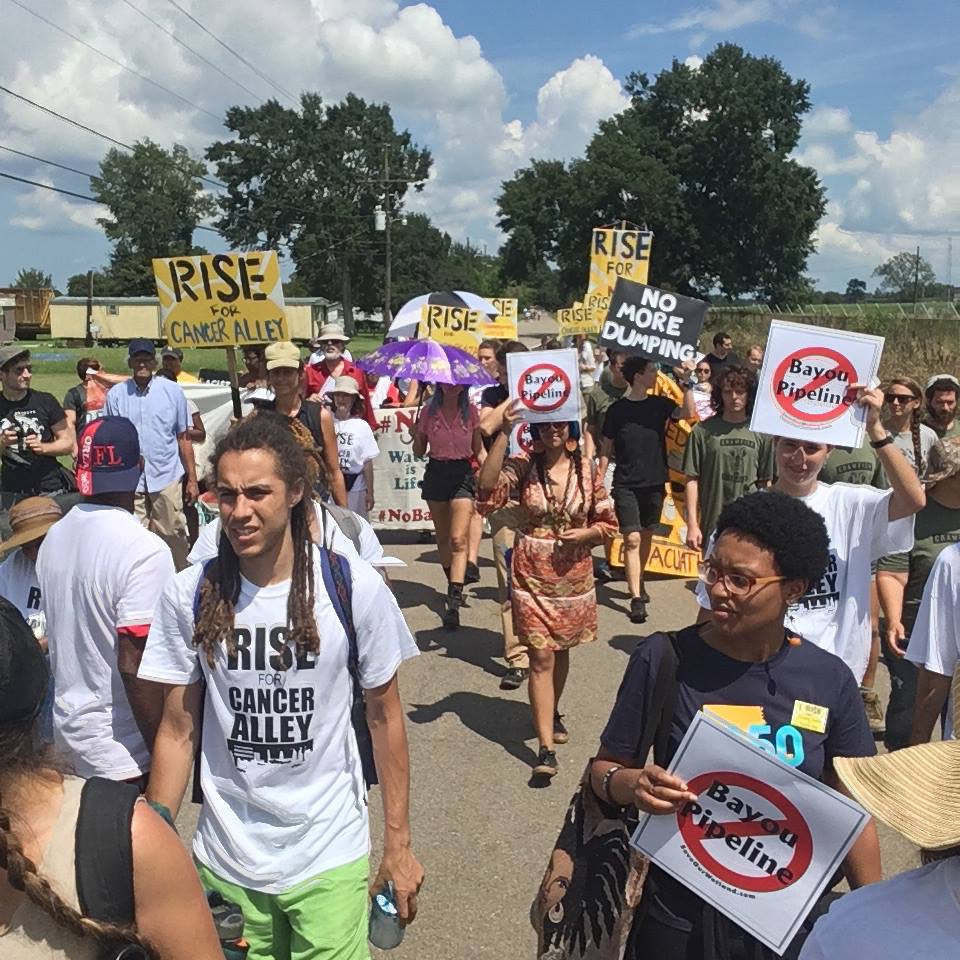
My feminist research teaches me that there is no separation between the public and private, intimate and professional, emotional and analytical, and personal and political (see, for example, Weems, 2018). By acknowledging women of color’s everyday environmental and climate activism, I push back at Eurocentric, positivist, and masculinist notions of who gets to talk about climate change, what counts as climate science and activism, and how we center gendered expertise when we plan for climate disaster. Most importantly, my ongoing analysis inspires me to push back at climate stories that applaud the fierce female fighters from frontline communities and demonize the male moneymakers who are conscripted into working in oil and gas. My truth is a bit messier.*
To answer the call of geographers, environmental scientists, and climate communicators to tell more stories about climate change, I am currently working on an ecowomanist (i.e. Black Ecofeminist, Indigenous, and Afrofuturist) digital ethnography. An ecowomanist digital (auto)ethnography will most appropriately and innovatively allow me to share the stories I gathered, lived, and cried during my fieldwork season in Bulbancha (i.e. New Orleans) and Cancer Alley (i.e. Death Alley) as a Black feminist political ecologist, urban grower, and vegan climate activist. I ultimately ask: how might policymakers and natural resource managers use insights from feminist political ecology, STS, and critical theories of race and gender to make better informed environmental decisions? How might we bring about a feminist vision of a ‘Global Green New Deal’? How do pleasure and the erotic (see Audre Lorde) inform the ways in which frontline communities organize around the violence of toxicity, displacement, disaster capitalism, land loss, health disparities, COVID-19, and other gendered/racialized inequalities? Most importantly, what is ecowomanist ethnography and why are feminist methods necessary when conducting research in southern geographies dominated by plantations, petrochemicals and pollution?
*Excerpt from Anthropology News. Cite As: Roberts-Gregory, Frances. 2020. “My Petrochemical Love.” Anthropology News website, April 22, 2020. DOI: 10.1111/AN.1387
Recorded Talks
Press Releases and Coverage
Click on the links or the images below to access the content
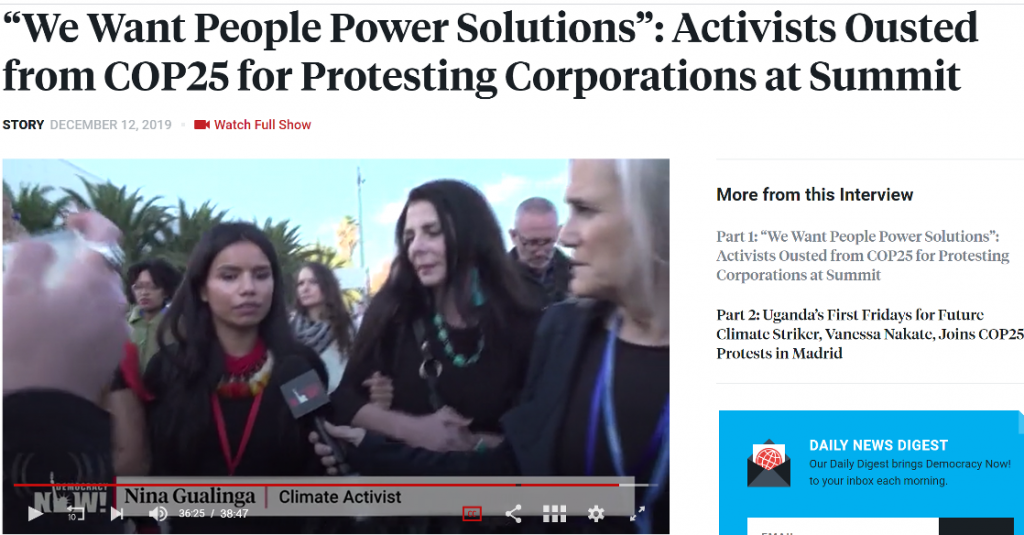
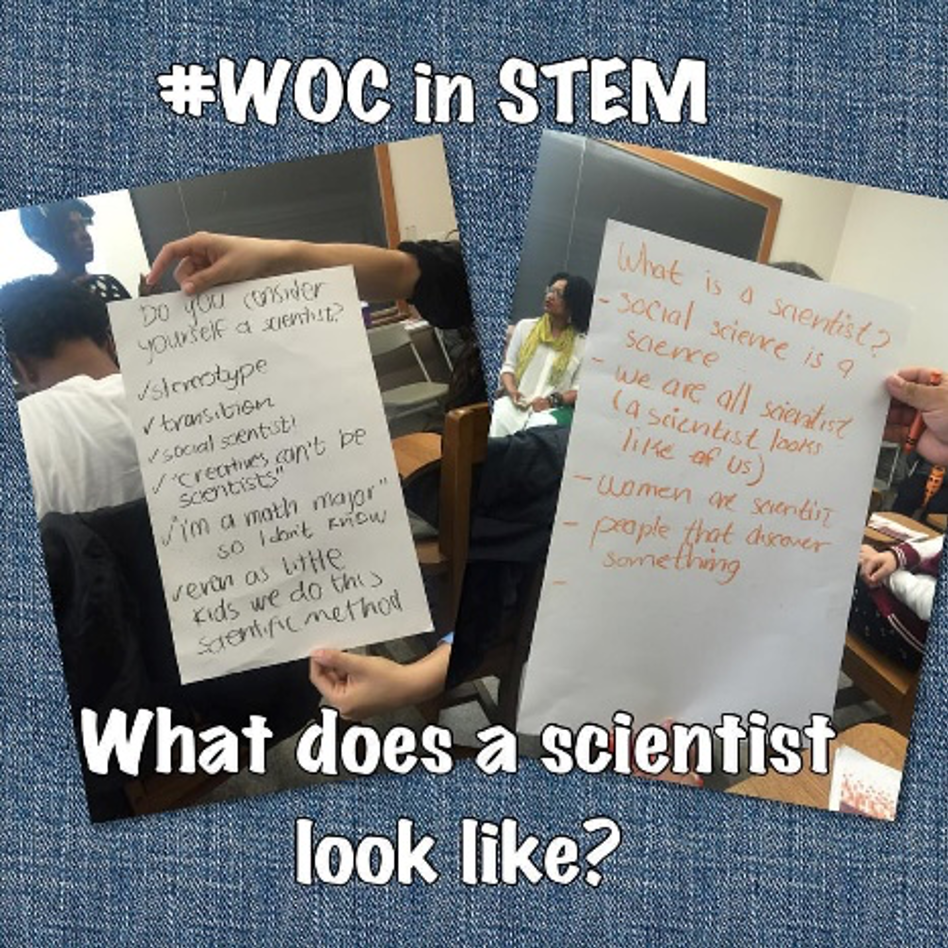
Interviews
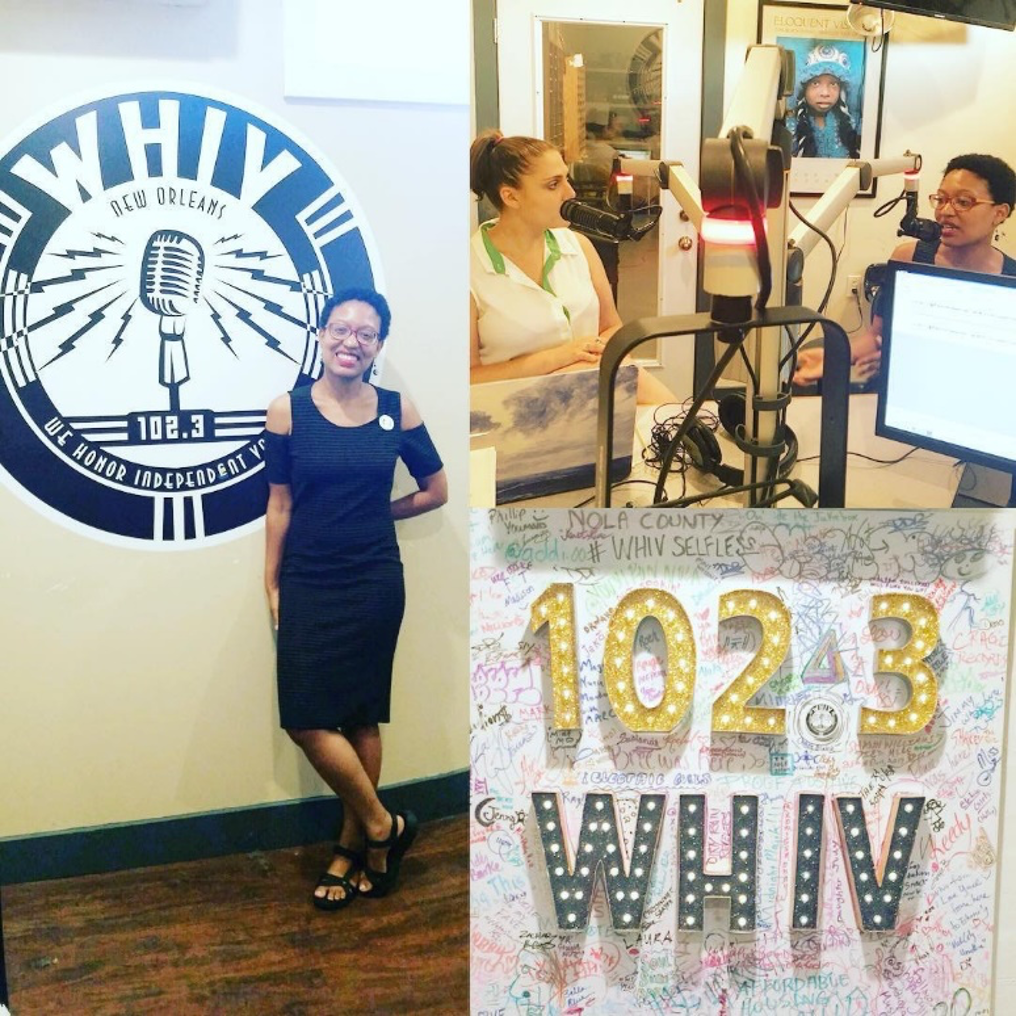
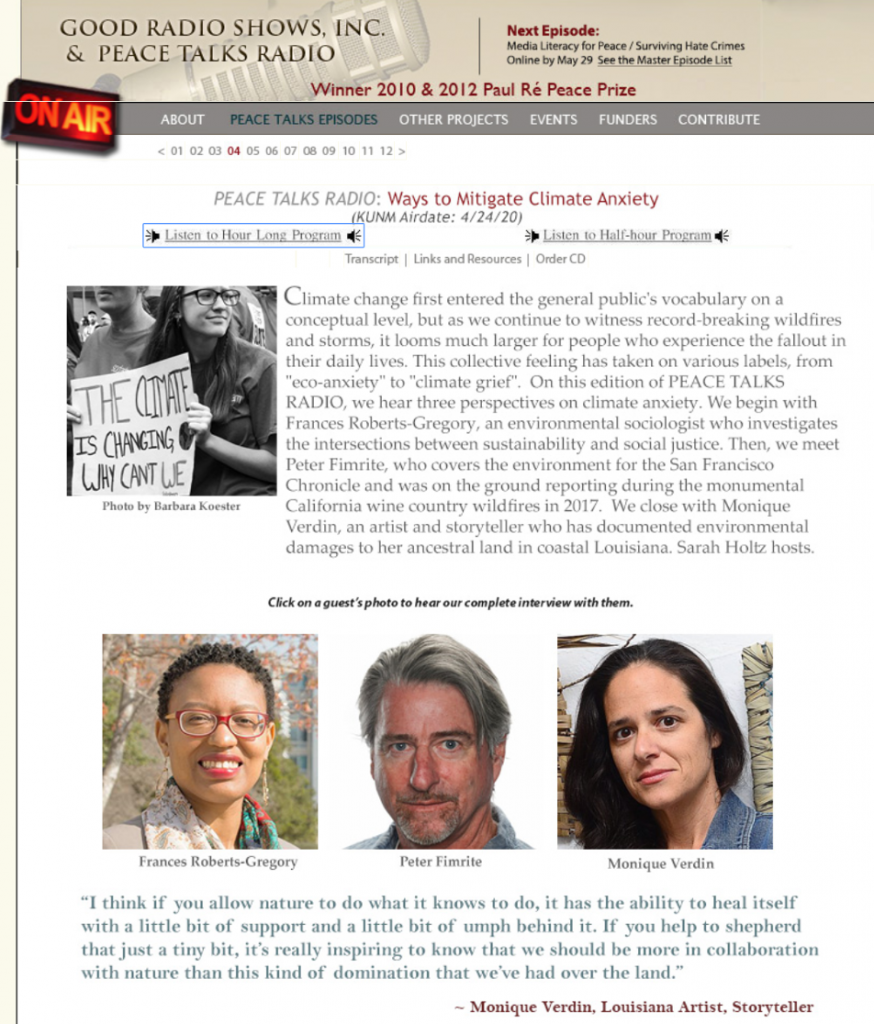
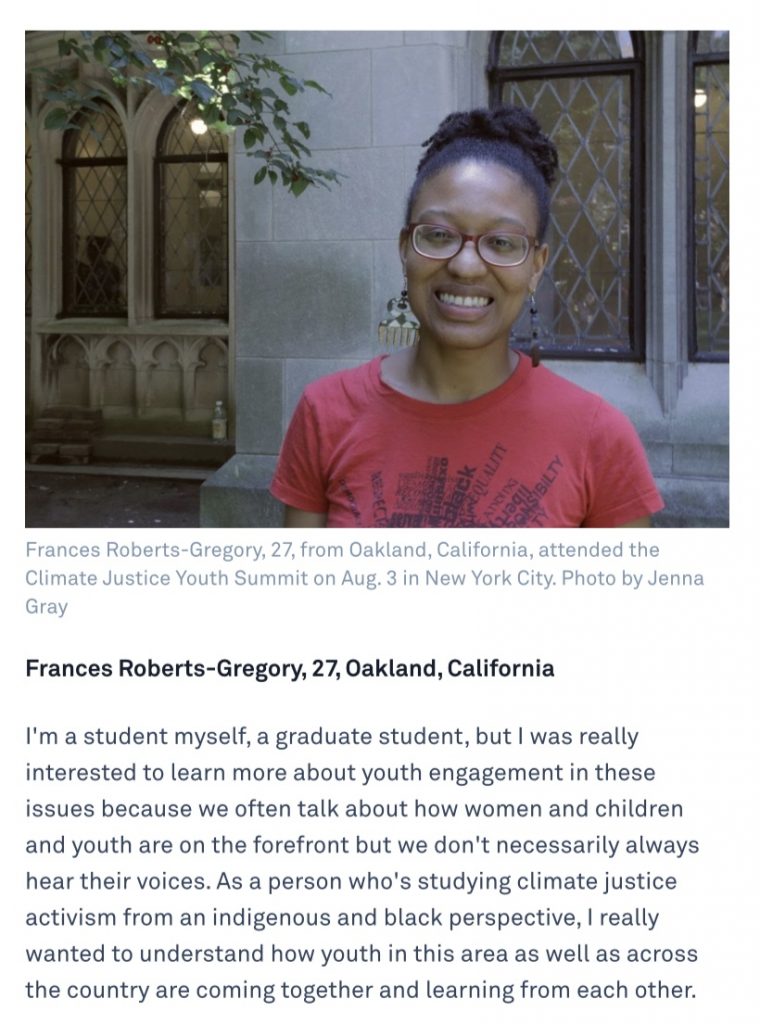
Recent Teaching and Original Curriculum Developed as Scholar-Activist
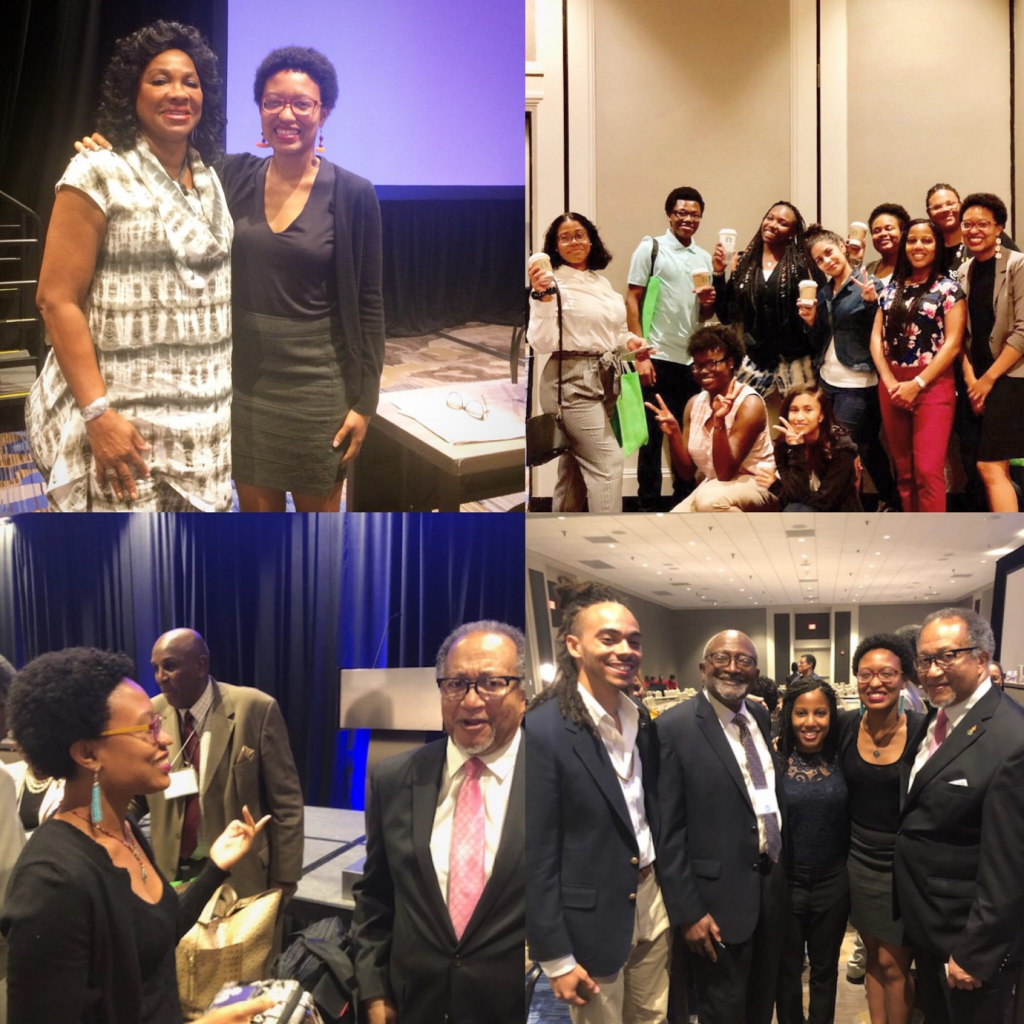
- Spring 2019, “Climate justice, digital media and civic engagement in New Orleans”, Bard Early College New Orleans (BECNO), Adjunct Professor
- Fall 2018, “Environmental Racism Matters”, Bard Early College New Orleans (BECNO), Adjunct Professor
- Fall 2018-Spring 2019, “Climate Justice, Digital Activism and Gender in Louisiana”, Tulane University, Adjunct Professor
- Spring-Summer 2019, Deep South Center for Environmental Justice Gulf Equity Water Corps Program, Project Manager
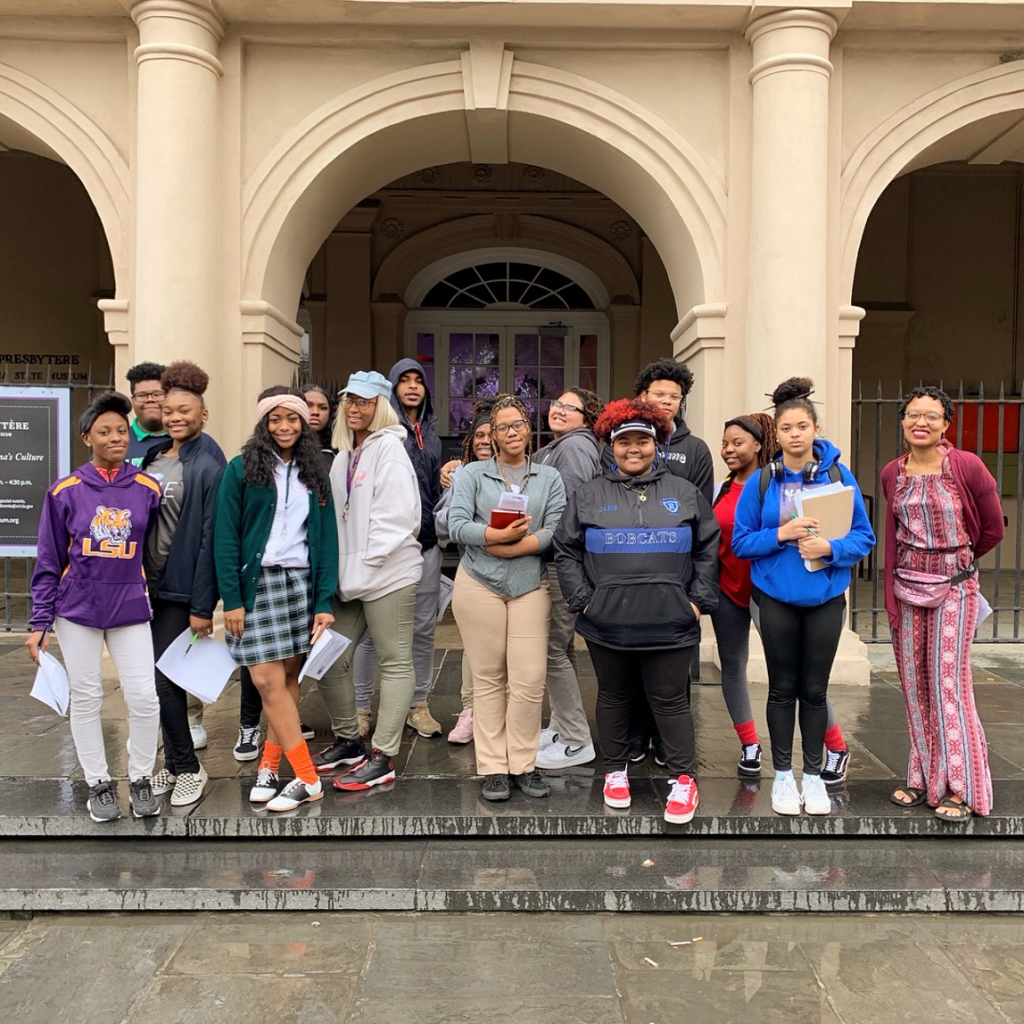
2019 Field Trip to the Hurricane Katrina Museum with students from Bard Early College New Orleans (BECNO) 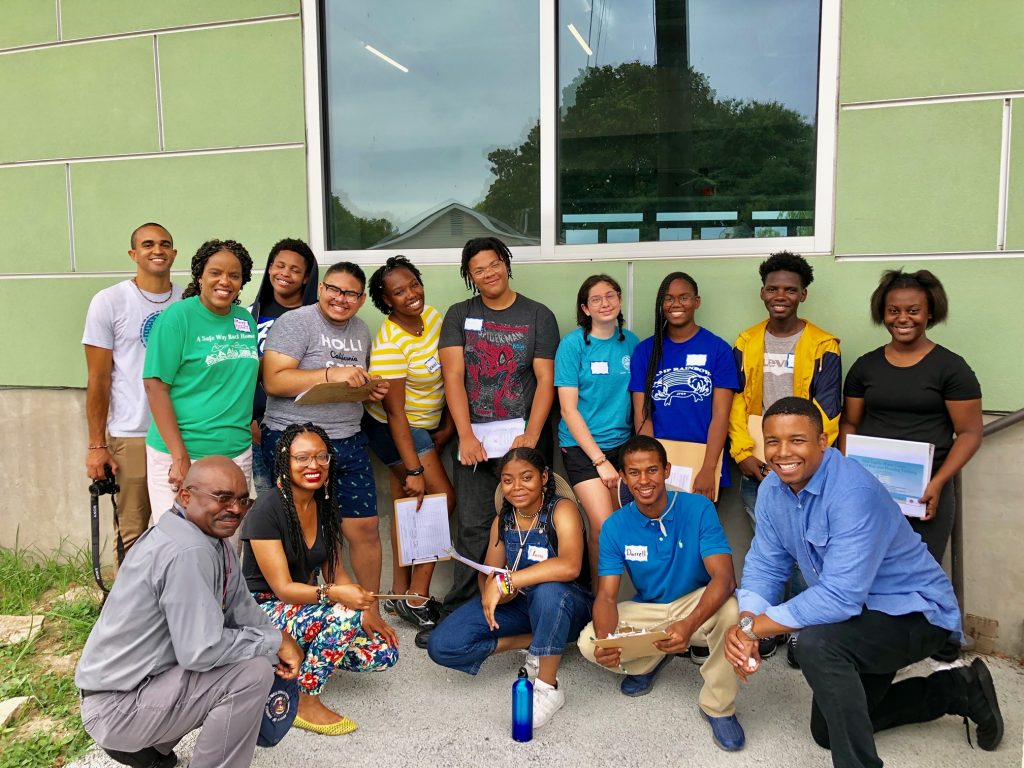
2019 Gulf Equity Water Corps Program Training in New Orleans led by the Deep South Center for Environmental Justice
Consulting
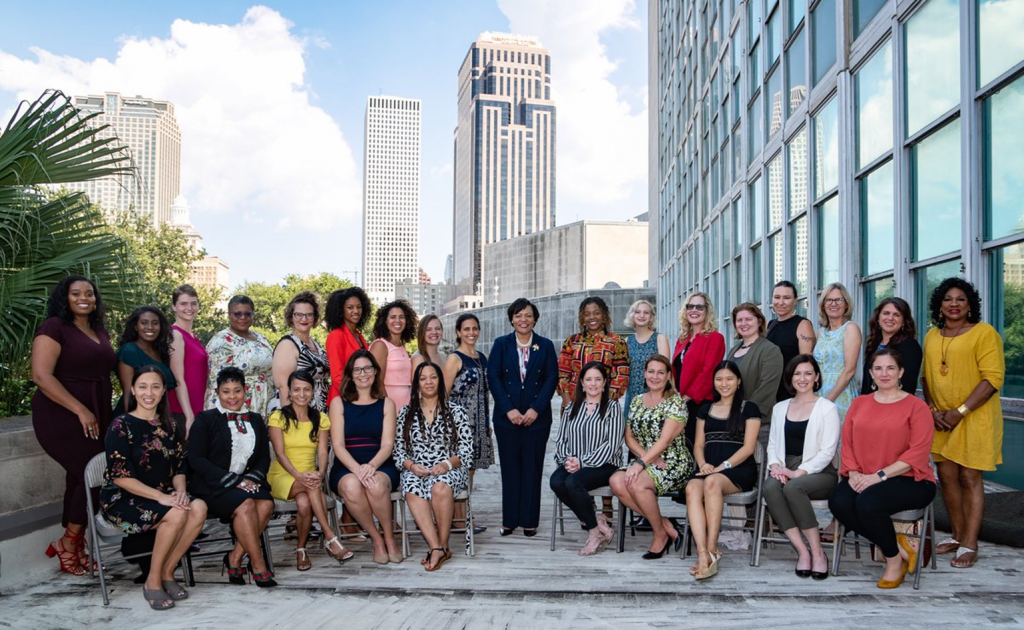
2019 New Orleans Women4Climate Mentorship Program
- 2019-2020, Workshop Facilitator/Resource Developer for New Orleans Women4Climate Mentorship Program
- 2019, Project Manager for Gulf Equity Water Corps Project at the Deep South Center for Environmental Justice
Recent Articles
- Roberts-Gregory, F. 2020. “My Petrochemical Love.” Anthropology News website, April 22, 2020. DOI: 10.1111/AN.1387
- Roberts-Gregory, F. 2020. “On Being the (Only) Black Feminist Environmental Ethnographer in Gulf Coast Louisiana.” Edge Effects
- Roberts-Gregory, F. 2020. “Reflections on Organic Agriculture, Climate Resiliency, and Black Farmers from the Southern SAWG Conference.” Berkeley Food Institute: News from the Field
- Roberts-Gregory, F. 2019. “I do not drive in the South….And here’s why.” ViaNolaVie
- Williams, M. and F. Roberts-Gregory. 2019. “Meet the Deep South Center for Environmental Justice (DSCEJ).” Students Rebuild
- Roberts-Gregory, F. 2017. “Supporting Women and Climate Justice”. EGA 30th Anniversary Journal: 1987-2017 30: 33.
- Roberts-Gregory, F. 2017. “Diversity and Environmental Grantmakers: A Summer Love Story.” EGA Blog
- Holly Doremus (moderator), Denis P. Galvin, George Miller and Frances Roberts-Gregory. 2017. “Strategic Conversation: Mission and Relevance of National Parks” in Science, Conservation and National Parks. Steven R. Beissinger, David D. Ackerly, Holly Doremus and Gary E. Machlis (Eds). Chicago: University of Chicago Press.
- Roberts-Gregory, F. and Hawthorne, T.L. 2016.“Transforming Green Walls into Green Places: Black middle-class boundary work, fractured communication and greenspace accessibility in southwest Atlanta.” Geoforum 77: 17-27.
Next Steps
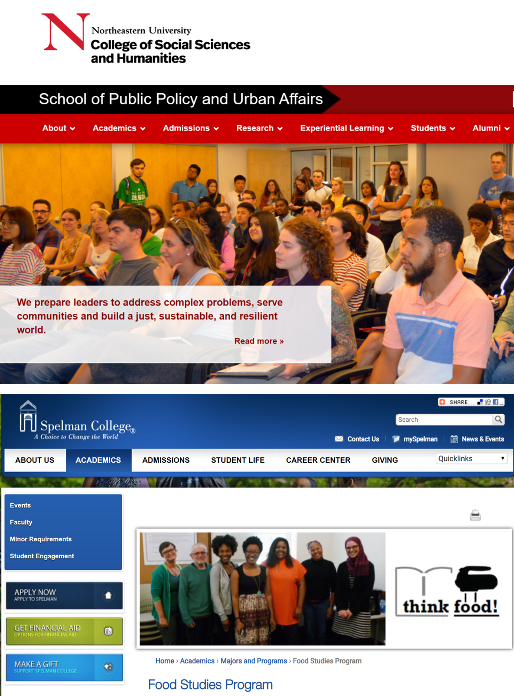
In fall 2020, Frances will start a Future Faculty postdoc at Northeastern University in the School of Public Policy and Urban Affairs with a secondary affiliation in the Department of Cultures, Societies, and Global Studies.
In 2021, Frances will start a tenure track position as Assistant Professor of Cultural Anthropology and co-director of the Spelman College Food Studies Program. She ultimately hopes to use her scholarship and activism to increase the representation of grassroots youth and women of color in climate policy, city planning, natural resource management, and urban agriculture.
Indigenous Land Acknowledgement and Acknowledgments
- I recognize that I teach and research within the territory of Bulbancha, a Choctaw word which means “place of many tongues”. New Orleans and surrounding territories historically served as a trading post for many different nations including the Chitimacha, Choctaw, Ishak, Tunica, Natchez, Atakapa, Caddo, and Houma. This region is also home to displaced and formerly enslaved African and Caribbean people(s) whose histories and traditions are indigenous to the region. By offering this Land Acknowledgement, I affirm Indigenous sovereignty and pledge to be more accountable to the needs of American Indigenous, Caribbean, and African people(s).
- This feminist activist research was made possible by Gulf Coast residents who generously shared their stories with me and supported my evolution into a climate justice activist. I would like to thank all of the grassroots groups and community organizations including 350 New Orleans, Justice & Beyond, Another Gulf is Possible, the New Orleans Peoples Assembly, the Louisiana Bucket Brigade, the New Orleans Alliance for Affordable Energy, the Coalition Against Death Alley (CADA), the Residents of Gordon Plaza, the Gulf Coast Center for Law & Policy, the First Peoples’ Conservation Council, Global Green, the Women of Cancer Alley, the Bvlbuncha Collective, the New Orleans Women4Climate Mentorship Program, Water Wise Gulf South, the Greater New Orleans Water Collaborative, the Deep South Center for Environmental Justice, the HBCU Climate Change Consortium, and countless others. I would also like to thank the Women’s Environment & Development Organization (WEDO), the Women’s Earth & Climate Action Network (WECAN), and the NAACP Environmental and Climate Justice Program.
- Finally, I would like to thank the NC State Building Future Faculty Program, the Spelman College Democratizing Knowledge Summer Institute, the University of Michigan and Environmental Grantmakers Association Environmental Fellows Program, the Significant Opportunities in Atmospheric Science & Research Mentorship Program (SOARS), the Georgia State University National Workshop on Community Geography, the Berkeley Food Institute, the American Association of Geographers, the University of California UNFCCC Observer Organization, the National Women’s Studies Association Women of Color Leadership Project, and the Feminist Agenda for a Green New Deal. Many thanks to the various members of my dissertation and qualifying exam committees, specifically Kathryn de Master, Carolyn Finney, Louise Fortmann, Carolyn Merchant, Timothy Hawthorne, Ula Taylor, Rachel Morello-Frosch, Tom Biolsi, and Charisma Acey. Thank you Julie Gorecki, my ecofeminist sister in solidarity and struggle, and much love to Julie Pyatt and Cheryl Corbin, my Finney lab sisters. Thank you, Dorceta Taylor, for your mentorship and for reminding me to graduate!
- Frances’ dissertation research, teaching, and travel has been generously funded by the Ford Foundation, the NSF Graduate Research Fellowship Program, the Robert & Patricia Switzer Foundation, the UCB Chancellor’s Fellowship, the New Orleans Center for the Gulf South, Sigma Xi, the Association for Feminist Anthropology, the UCB Graduate Division, the UCB Graduate Assembly, Tulane University, Bard Early College New Orleans, the Women’s Environment & Development Organization (WEDO), the Deep South Center for Environmental Justice, and the Gates Millennium Scholars Program.
